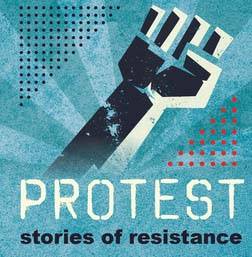
Rural: The Lives of the Working Class Countryside (William Collins) by Rebecca Smith
When Rebecca Smith was a child, she remembers being invited to a Christmas party in a grand Victorian mansion on a country estate. While her parents, who worked with their hands, ate mince pies, Smith snuck off with her brother and some other kids to explore. They did not feel at home. “We sat on the red carpet and frightened each other with stories of the portraits’ moving eyes,” she writes.
Yet Smith lived on the country estate. She grew up in what’s known as tied housing, in which her father, a forester for an aristocratic family in Cumbria, was not paid a dependable wage but lived rent-free in a smaller house on the grounds. This strange upbringing gave Smith many things – a deep relationship to nature, unsettling feelings when near grand homes, a cross-class ability to switch accents – and forms the book’s starting point. Part memoir, part social history, Rural follows her travels across the UK visiting tied housing, with chapters focused on industries such as coal mining, textiles and water, exploring stories about the workers – but not owners – of the British countryside.
Smith captures being caught between two worlds. “I had unlimited access inside the walls of a managed, affluent landscape,” she writes, but “stepping in the footsteps of the upper classes did not mean I wore their shoes.” The sections excavating her own childhood, and her knotty feelings looking back as an adult, I found particularly evocative. When I was a child my mother worked as a cleaner in Somerset, and I remember wandering the halls of a vast country home while she scrubbed it clean. We lived in a council house, not tied housing like Smith, but I still recognise the feelings of alienation: my confusion at discovering a cricket net, a perplexing game I did not understand; or marvelling that some people could afford their own swimming pools, but rarely bothered using them.
The book’s strongest material draws on Smith’s family history to explore Britain’s rural working-class industries. In the chapter “Water”, we learn Smith’s great-grandfather worked to build a reservoir near Sheffield in 1926; her great-great-grandfather helped construct the Manchester Ship Canal in 1891, sharing a hut with his wife, four children and an oppressive 11 lodgers. In “Mining”, we hear how her great-grandfather was killed in the 1950 Creswell colliery disaster, which saw a pit fire suffocate 80 people underground.
The “tragic decision was made to seal up the mine” to extinguish the blaze, Smith writes. “One miner reportedly worked on the seal knowing his father was still inside.” These arresting stories flash the brutality and injustice of working-class rural existence before our eyes. Here, Smith brings her own life into the narrative effectively. In “Textiles”, she visits a rural mill with her son, telling him, to his disbelief, that children used to work gruelling hours in British sweatshops.
Other sections are less compelling. Rural has a scattered approach to what constitutes “the working-class countryside,” without a clear definition proposed by Smith. I felt a sense of historical vertigo as we jumped from century to century. Smith concedes in her prologue this is not “a full account of all the rural industries that had houses come with the jobs,” but hopes the book punctures the romanticism of modern nature writing by telling “the stories of tenants whose lives went unrecorded”.
It’s an admirable, urgent goal. But the book feels at times like a missed opportunity. Voices from the UK’s contemporary rural working classes – for instance today’s 40,000 fruit pickers, who are routinely trafficked and exploited – are not heard enough. And sloppy writing crops up too much.
To Smith’s credit, her perspective is nuanced, coming to positions through discovery and weighing all views rather than lecturing the reader. That makes her critiques all the more powerful: she persuasively shows how Britain has treated its rural working classes – past and present – with contempt, harshness and insecurity. With rural workers too often absent from conversations on British industrial history, books like Smith’s are a welcome corrective.
This article is from New Humanist's winter 2023 issue. Subscribe now.

